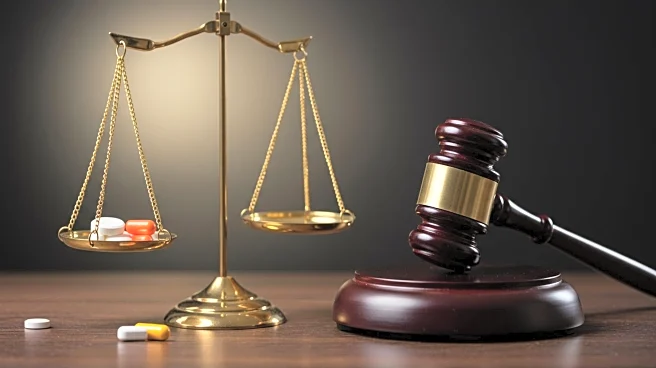What's Happening?
The State of Texas has filed a lawsuit against Eli Lilly, accusing the pharmaceutical company of offering illegal incentives to healthcare providers to prescribe its GLP-1 drugs, Zepbound and Mounjaro. Attorney General Ken Paxton claims that Lilly engaged in a kickback scheme to maximize profits at the expense of taxpayers and public health. The lawsuit details two programs allegedly used by Lilly to incentivize prescribers, including providing free patient-care services and reimbursement assistance. Eli Lilly has denied the allegations and plans to defend itself vigorously.
Why It's Important?
This lawsuit could have significant implications for Eli Lilly, potentially affecting its reputation and financial performance. If the allegations are proven, it may lead to substantial penalties and changes in how pharmaceutical companies interact with healthcare providers. The case also highlights ongoing concerns about ethical practices in the pharmaceutical industry, particularly regarding the influence of corporate incentives on medical decision-making.
What's Next?
The lawsuit is set to proceed in the District Court of Texas, with Attorney General Paxton seeking civil recoveries and an injunction against further unlawful acts by Eli Lilly. The outcome of the case could prompt other states to examine similar practices within the pharmaceutical industry, potentially leading to broader regulatory changes. Stakeholders, including healthcare providers and patients, will be watching closely for any developments that could impact drug pricing and availability.










